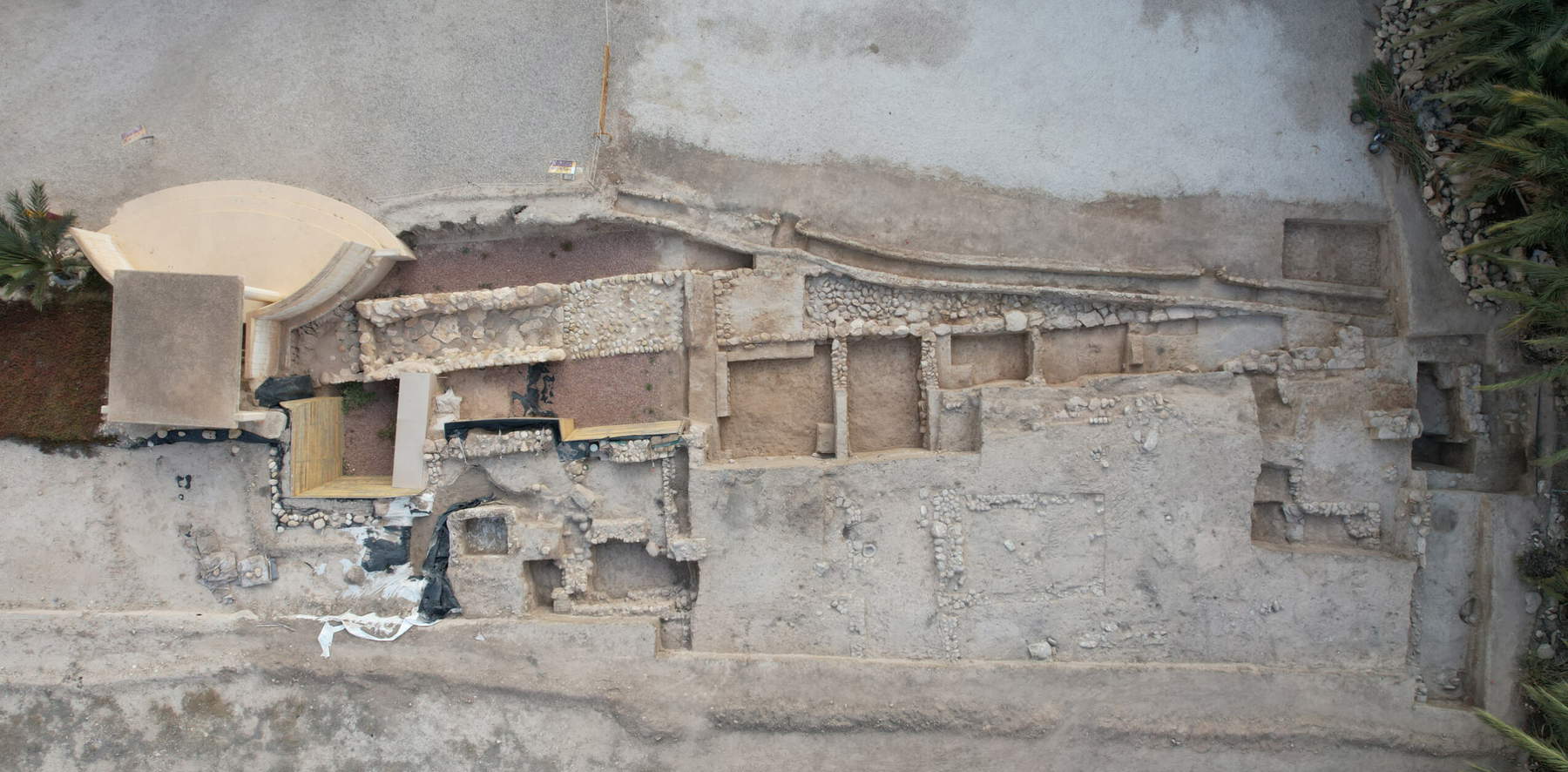Important archaeological discovery in Spain where a group of researchers from the Universities of Alicante and Murcia working around the project Damas y Héroes. Tras la Ilici ibérica, which has been researching since 2017 around the site of Ilici, near La Alcudia in southern Spain, have discovered extensive remains of theancient Iberian city that gives its name to the project, Ilici in fact, which gave its name to today’s Elche, one of the largest cities in southeastern Spain.
Investigations conducted since 2017 had already uncovered the wall of the founding enclave of the Iberian site, which dates back to 500 B.C., and some rooms, belonging to remnants of dwellings of the protourban city. Information that in the latest archaeological campaigns has multiplied exponentially, so much so that up to eight apartments, some belonging to the same house, are currently known to be leaning against the foundation wall and representing the first known trace of the Iberian Ilici, one of the most important cities of the Iberian Contestania, which occupied a vast territory between the present provinces of Alicante, Murcia, Albacete and southern Valencia.
The research team knew that the discovered Iberian enclave was one of the most important in the southeastern part of the peninsula. “It was known for the greatness of some of the artifacts found, among which the sculpture of the Lady of Elche undoubtedly stands out. However, it was necessary to find architectural remains that would explain the importance of the Iberian groups settled there and provide insight into what society was like at the time,” explain Alberto Lorrio, professor of prehistory at the University of Alicante, and Héctor Uroz, professor of ancient history at the University of Murcia, who are directing the research project.
The discovery of the city’s founding enclave has made it possible to “contextualize the Iberian elites who commissioned sculptures such as the Lady of Elche,” Lorrio says. The discovered traces constitute “the first metropolis, the first major Iberian city in Contestania and the oldest. There is no older one of this magnitude,” says Professor Uroz.
One of the most remarkable features is the good state of preservation of the remains. The explanation is that the inhabitants “decided to abandon that area because of the constant flooding they were suffering from and chose to move to a higher area, but not before filling the interior of the old, previously abandoned houses,” explains Professor Alberto Lorrio.
This exceptional fact has made it possible to document the construction techniques of the first Iberians who inhabited La Alcudia with the use, in the wall and domestic spaces, of a mixed architecture with masonry plinths and kneaded clay elevations. The scholars found the architectural elements “almost in a perfect state of preservation, while there are few finds of ceramic containers or other material elements of the period, since with the restructuring of the settlement the inhabitants left only the objects they had forgotten inside the abandoned dwellings.”
The finds, which surprised by their monumentality and level of preservation, are in line with “the power that Contestania elites must have had in their time.” Curiously, the walls of the buildings, as documented in past campaigns, have “earthquake-resistant systems identified only at this site,” implying prior knowledge of this type of defensive construction and its adaptation to the terrain, explains Lorrio, who points out that, due to their characteristics and complexity “these constructions, as well as the related urban planning, respond to a preconceived and perfectly planned design, in accordance with the importance of the settlement.”
The excavation phase is already finished, and now, with the site already covered for its protection, researchers have begun the analysis phase of the pieces found in the laboratory. In the next campaign the excavation of the houses will be expanded within the settlement in order to obtain a complete view of the oldest Iberian phases of the excavated sector. “A very complex task since it involves a reverse approach to the history of La Alcudia, which in the area results in the discovery of remains of buildings, burials and powerful garbage dumps belonging to different periods, such as late Roman or Byzantine,” he says.
At the project Damas y Héroes. Tras la Ilici ibérica students and graduates of the History Degree and the Masters in Archaeology and Prehistory (MEPAM) of the Universities of Alicante and Murcia are participating, and it is funded by the Vice-Rectorate of Research of the University of Alicante and the support of the Municipality of Elche and the Generalitat Valenciana.
 |
| Spain, extensive remains of ancient Iberian city of Ilici discovered |
Warning: the translation into English of the original Italian article was created using automatic tools. We undertake to review all articles, but we do not guarantee the total absence of inaccuracies in the translation due to the program. You can find the original by clicking on the ITA button. If you find any mistake,please contact us.